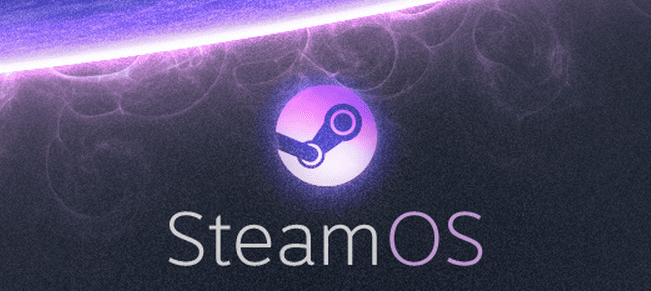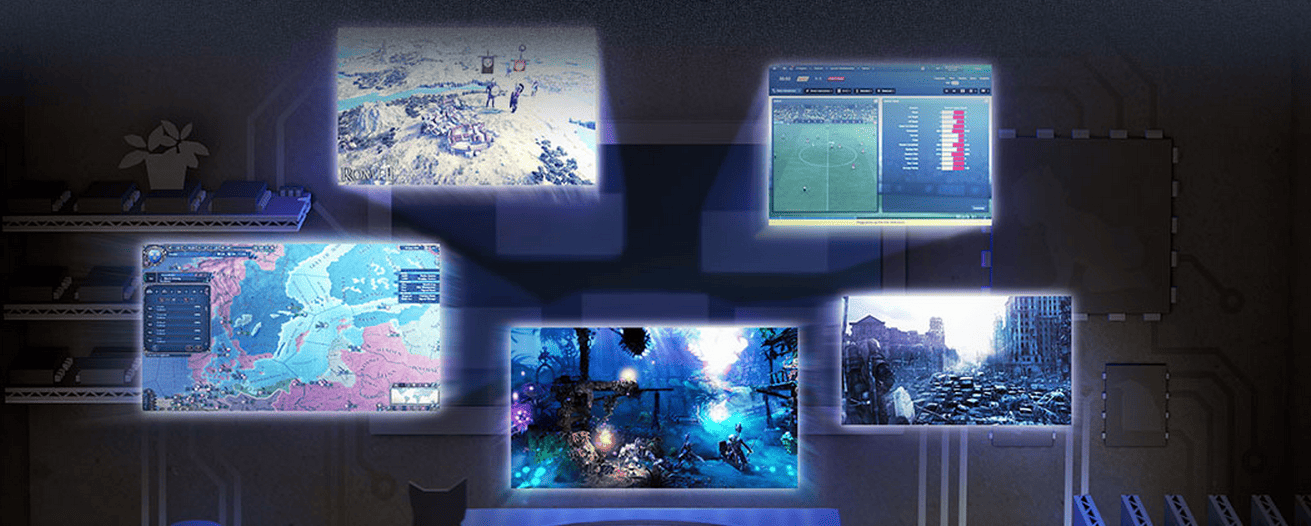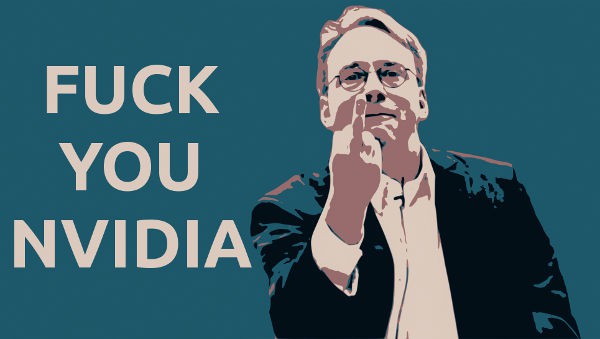Is SteamOS a threat to Microsoft’s desktop hegemony?

Valve recently announced its own shiny Linux distribution, unlike most Linux distributions SteamOS will be targeted to gamers and designed to be used primarily on your television. Gaming has long been a sore spot for the open source community, big budgeted games had very few incentives to port their games into a relatively small platform and it caused the classical vicious circle: Gamers don’t use Linux because most games aren’t available, most games aren’t available because gamers don’t use Linux.
The current situation also affects how committed hardware companies are into making good drivers. Valve added Linux support a few months ago, something the community had been begging for years, there were many rumors of imminent launches, leaks and all kind of speculation, which is a bit of a tradition at Valve, being supported by Valve was a big step forward but it should not be confused with being supported by the industry.
SteamOS: Valve’s gaming Android.
Traditionally gaming consoles have followed a very simple model: Hardware companies create a gaming machine that they replace every 4 to 6 years, every game has to be approved by the hardware maker, they have a few studios to create exclusive games for their own consoles and game developers can choose what consoles to develop for. Valve pretends to break with this tradition by providing the software platform (running Linux) for any company that wishes to create a Steam Box.
Steam has over 54 million active users on the PC, most using Windows, which is a pretty big number. Since Steam isn’t available on any kind of console these gamers have to either abandon any intent to play on their TV, plug their computer using an HDMI cable to their TVs or build a custom computer for their TV, buy and install Windows and then install Steam on it. SteamOS aims to be a compelling alternative to advanced users by letting them download and install SteamOS on any computer they want, meaning gamers can build their own custom box without the need of a Windows license, helping them avoid sacrificing valuable hardware resources on Windows, and providing an interface designed for a TV.
It seems reasonable to assume that the intersection between the set of people that are PC gamers and the people interested in Linux is much bigger (in proportion) than the intersection between PC users and people intrigued by Linux, many of which can’t use Linux or are forced to dual boot to cover their gaming needs, it seems plausible that a sizable subset of them would rather use SteamOS on their TV and maybe Linux on their PC (running Steam) than Windows and Xbox.
For less advanced users, including people that don’t currently use Steam, SteamOS will offer the aforementioned boxes which will be as plug’n play as any other console. The hardware variety introduced by Steam not being the sole manufacturer of Steam Boxes mean there will something at different price points, much like Android ranges from low-end devices all the way up to the highest end devices on the market. My guess is that Valve will set a line of minimum requirement that will be supported for a determined amount of time, i.e. all new games are guaranteed to work for x years.
The competition
Valve and its SteamOS will be competing on a fierce market dominated by subsided hardware, Microsoft has been making consoles for two generations now and despite being a worthy competitor to Sony and Nintendo it has yet to make a profit on its gaming division. Aside from hardware variety and different price points, does Valve has a fighting chance? Does it have any advantage beyond making your own gaming box?
I believe one of SteamOS’ bigger advantages will be the fact that you only need to buy a game once to play it on your computer or your television, in effect, you could take any games you like with you on your laptop (assuming your laptop has a gpu decent enough) and play on the go, or switch between your desktop and television at will without worrying about buying the same game twice. Also many of your current titles will be available instantly on your shiny new box, and from this point and beyond you can expect full backwards compatibility when you upgrade your Steam Box or laptop or PC. Another inherent advantage of Steam is pricing, games are generally cheaper (a lot cheaper) than on consoles. But perhaps Valve’s biggest advantage is being Valve, with the right exclusives like Half-Life 3, it could push SteamOS and Steam Boxes forcefully.
If Valve is serious about SteamOS it should make its highly anticipated games, like Portal 3, but especially Half-Life 3, exclusive to Steam boxes. I don’t think this an unreasonable expectation, after all Gabe Newell called Windows 8 a catastrophe.
Linux, the great beneficiary
While is undoubtedly true that Valve will benefit from using Linux thanks to its very mature state and open source nature, Linux will also benefit from Valve if they succeed as it will truly achieve support from the gaming industry, we’re already starting to see the first effects of this “partnership” as both NVidia and ATI have announced they will step their game up and support Linux properly. These positive changes on the Linux ecosystem not only benefit gamers, regular Linux users will greatly benefit from better drivers, whether they edit video, pictures, code or just watch YouTube, the increased graphical performance will translate into a better experience.
Is Windows’ empire threatened?
I believe that SteamOS, Steam for Linux and the Steam boxes could potentially push Linux’s marketshare quite a bit, perhaps if everything goes well, several percentage points in their entirety (which would represent a massive growth for the community), I don’t think is realistic to expect Linux to reach a high enough share to become a threat to Microsoft as the most common operating system on desktop computing, but it could push the gaming industry over to Linux, which would be a massive boost for us, not only in marketshare but in future prospects to continue the uphill battle with Microsoft.
The Indie Humble Bundle has also busted one important myth that surrounded Linux users: That we wouldn’t pay money for anything. In every Bundle Linux users have chosen to be very generous, we’ve shown our gratitude with more than a few thank yous, we’ve proved that we’re willing to pay for stuff if you support us.
Ballmer invested a lot on Xbox and it would be a big hit if they can’t leverage their gaming platform to Windows, thankfully for Valve and Linux, until now, they have massively failed at achieving it, this could be the final nail in the coffin.
We should support Valve
I sincerely believe the gamers on the Linux community should support Steam Boxes when they eventually launch. The success of Valve in the gaming industry will be the success of Linux, and it would help it gain traction in the fight for the big picture. I’m sure many of us own an X360 or a PS3, and some us may be even waiting impatiently for the PS4 or the Xbox One, and some may even be on the Wii U’s bandwagon, but we can vote this time with our money for Linux, even if it means missing a few exclusive games from competitors, I think we should support Valve. Linux strength used to be on non-consumer products, supercomputers, servers, appliances, among a thousand more, now Linux completely dominates the smartphone industry and is in the right path to take over the tablet market, the gaming industry could be next one, it’s no longer day dreaming, it could happen and you can make it happen, you just need to have a ton of fun playing video games on a Steam Box or Steam for Linux.






Good article, I just hope that the community supports the project enough.
Repeat this bit over and over again: “I believe one of SteamOS’ bigger advantages will be the fact that you
only need to buy a game once to play it on your computer or your
television, in effect, you could take any games you like with you on
your laptop (assuming your laptop has a gpu decent enough) and play on
the go, or switch between your desktop and television at will without
worrying about buying the same game twice.”
That’s a very, very good point.
I’ve got a few Linux games through Steam (and the Humble Bundle) and i would definitely play some of them in front of a TV.
We got a free Wii with the TV a few years ago. I hardly use it. The kids, 3 & 4, hardly use it. In a couple of years, i’ll be keen on replacing it with a Steam Box because i have no interest in the XBOX One and not a great deal of interest in the PS4.
one thing that keeps me going back to windows is game,sweet music to my ears,i luv Linux with all my heart
I hope this works out, for all our sakes, although I’ve become a bit cynical as of late. I figure it’s more important to support every platform you can and keep your software as open as possible, rather than to bet on a particular option. Of course, Linux is certainly better at nearly everything except for application availability and marketing, that is, compared to its desktop counterparts.
But I would love to see innovation flourish on an open source operating system with openly developed components and libraries, just as it has in the mobile and embedded space. Gamers and desktop computer users have always deserved the benefits Linux provides, as well as the range of specialized software Windows users enjoy. I only hope that these age-old benefits will become commonplace in the next decade.